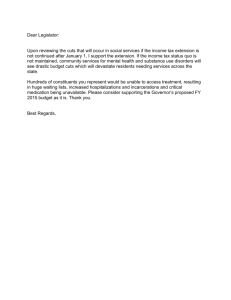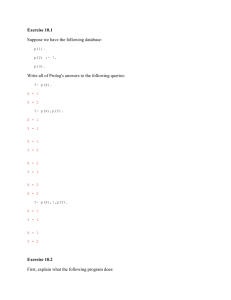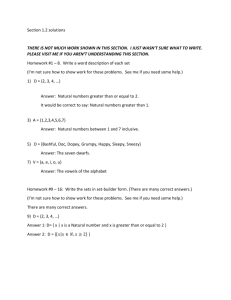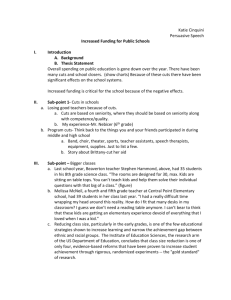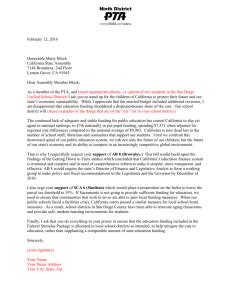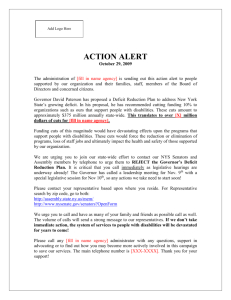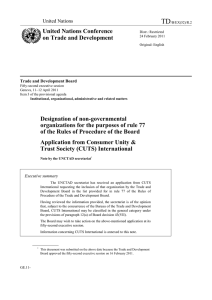Civil Society's Participation in Trade Policy Making Case of CUTS
advertisement
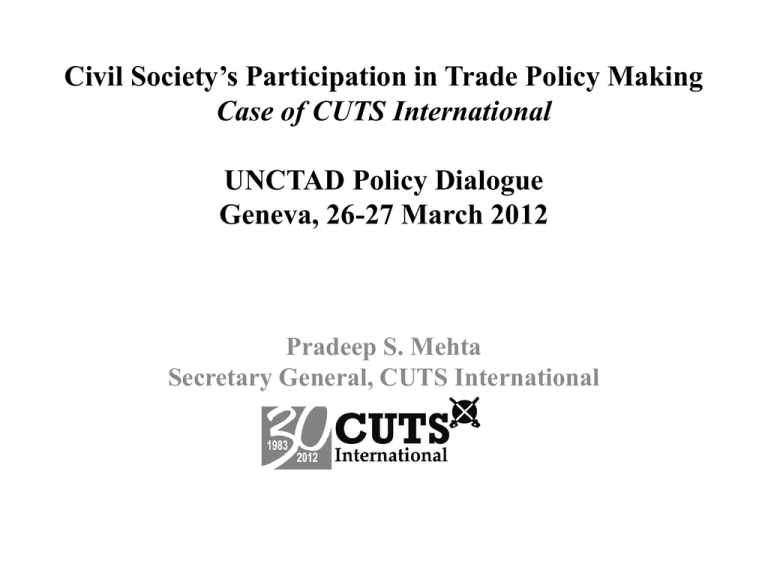
Civil Society’s Participation in Trade Policy Making Case of CUTS International UNCTAD Policy Dialogue Geneva, 26-27 March 2012 Pradeep S. Mehta Secretary General, CUTS International OUTLINE Why civil society’s participation in trade policy making? CUTS’ experience in participating in trade policy making in India and Zambia CUTS’ work on civil society’s participation in trade policy making in India and Africa Lessons from CUTS’ work on inclusive trade policy making Points to ponder Why civil society’s participation in trade policy making? Trade measures are no longer confined to borders There are trade-related measures and linkages between trade and non-trade issues To challenge the thinking: “exports are good, imports are bad” – to align consumer interests with producer interests Core mandate for civil society’s participation in trade policy making We shall therefore at the national and international levels continue to promote a better public understanding of the WTO and to communicate the benefits of a liberal, rules-based multilateral trading system – Paragraph 10 of the Doha Ministerial Declaration. Participation in trade policy making in India National Advisory Committee on International Trade (1996-2004) Inputs to WTO Ministerial Conferences, and member of the official delegation to the Hong Kong Ministerial Active engagement in amendments to policies and laws – Patents Act, Competition Act, Competition Policy, FDI Policy, Manufacturing etc. Two important suggestions: Long-term (five year) trade policy Inter-State Trade Council Active participation in UNCTAD conferences, in conducting studies and organising conferences, and engaging Parliamentarians Participation in trade policy making in Zambia Trade Expansion Working Group – representing those stakeholders not having good access to policy making process Awareness generation on virtues and challenges of Aid for Trade – Enhanced Integrated Framework Active involvement with the National Implementation Unit of the EIF projects Engagement with Parliamentarians CUTS’ work on civil society’s participation in trade policy making in India and Africa o GRANITE in India – capacity building of grassroots and communitybased organisations o MINTDEV in India – mainstreaming trade into national development strategies – embed social and political considerations in trade policy o FEATS in Africa (Kenya, Malawi, Tanzania, Uganda, Zambia) – Inclusive Trade Policy Making Index – 14 action variables determining ITPMI – from 9.50 in Kenya and Zambia to 8.50 (Malawi) to 8.25 (Uganda) to 7.50 (Tanzania) Why more and more civil society engagement is needed in generating better political buy-in for contentious policies such as FDI in multi-brand retail in India Myths and Realities Lessons from CUTS’ work on inclusive trade policy making • No one-size-fits-all in trade policy prescription • Better to have an inclusive and participatory process with wider stakeholder consultation • A stark contrast between India and Zambia – political consensus building is most important • Evolving nature of trade policy making – importance of information flow and capacity building of stakeholders Points to ponder Why is CSO engagement more inclusive in some countries than others? Civil society’s articulation of demands – supply does not always create demand Impact of inclusiveness – social, economic, environmental impact Development of institutions on norms, procedures and rules so as to facilitate convergence of expectations of a diverse group of stakeholders – making the process from de facto to de jure THANK YOU
